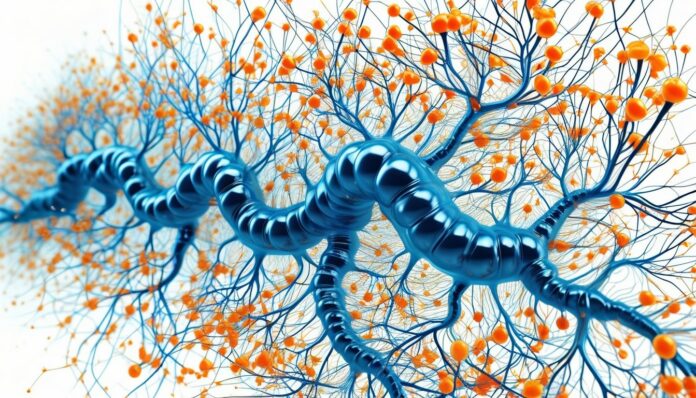The nervous system is what enables humans to think, feel, and perceive the world. Not only humans, but all living creatures rely on it for survival. The brain is a crucial part of this system, but impulses travel through the body via delicate nerve fibers that stretch throughout the entire body. The total length and sensitivity of these fibers are truly astonishing.
Facts About the Nervous System:
- Decisions are made not only by the brain, the central part of the nervous system, but also by the spinal cord, which plays a supportive role. Reflex actions, for example, are controlled by the spinal cord.
- Impulses travel through the nervous system as electrical signals. The platypus has evolved a unique sensitivity, allowing it to hunt at night despite poor vision, smell, and hearing by detecting the electrical signals of muscle contractions to locate prey.
- Proper hydration is essential for the nervous system to function correctly. Dehydration can impair its efficiency.
- The human body contains more nerve cells than there are people on Earth.
- All sensory organs are directly connected to the nervous system, and their main function is to “inform” it about external events.
- The brain, the control center of the nervous system, can store about 1 petabyte (1 million gigabytes) of information.
- Unlike computers, the human nervous system can process many tasks simultaneously rather than sequentially.
- In a normal state, humans use about 30-40% of their brain capacity. When focused on something, the load on the nervous system increases.
- Many diseases can result from excessive nervous tension, though not all, contrary to what some uninformed specialists might claim.
- The total length of nerve fibers in an adult human body reaches 75-80 km (46-50 miles). This is enough to wrap around the Earth at the equator twice.
- Nerve impulses travel at speeds of up to 300 km/h (186 mph). The delay is so minimal that it goes unnoticed.
- The human brain contains approximately 100 billion neurons, but they are very small. If all the neurons were laid out in a line, it would stretch about 1,000 kilometers (621 miles).
- Nerve cells are larger than any other cells in the human body.
- Developmental delays are often linked to problems with the nervous system.
- About 20% of the world’s population experiences various nervous system issues, but most of these are not severe.
- The human brain is the center of the nervous system, but in some extinct animals, such as certain dinosaurs, the spinal cord was more developed than the brain.
- The feeling of fatigue is not always due to physical exertion; it can also be caused by nervous system overload or stress.
- In all mammals except marsupials and monotremes, bundles of nerve fibers called the corpus callosum connect the brain’s hemispheres. In the mentioned families, the hemispheres are connected, but they lack a corpus callosum.
- The science of the nervous system encompasses many other sciences and doesn’t have a single comprehensive name. It is most often equated with neurobiology or simply called neuroscience.
- The most complex nervous system belongs to humans, while the most primitive is found in cnidarians, marine creatures related to jellyfish, of which there are about 11,000 species worldwide.
